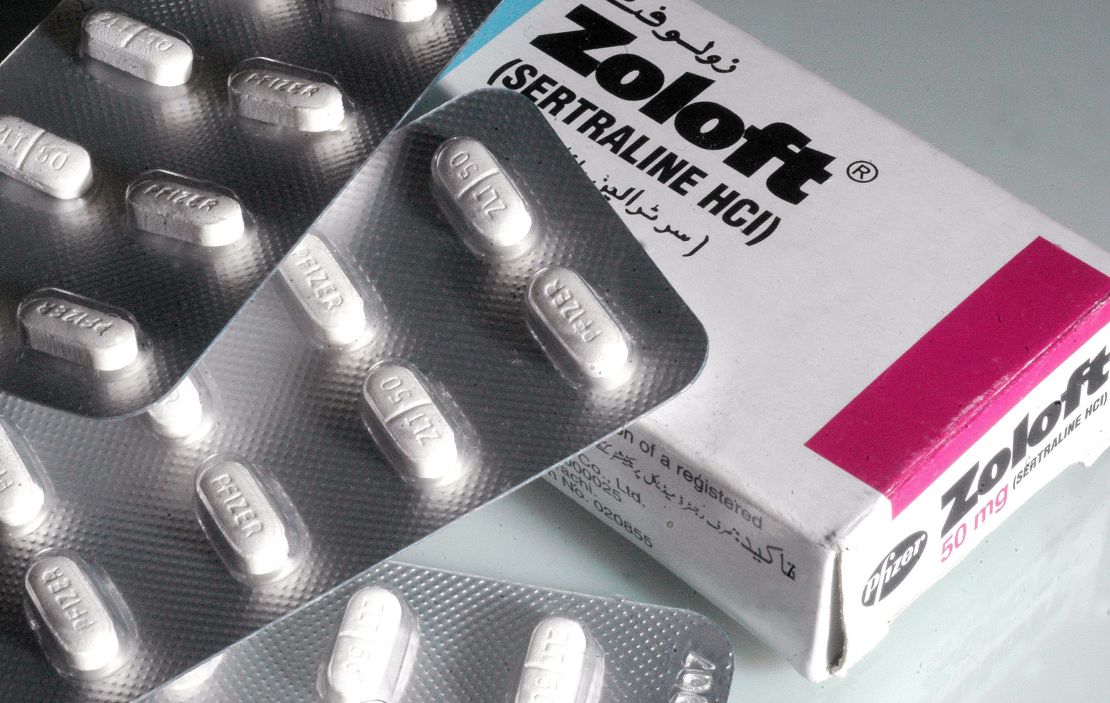Overcome with heat? The culprit may be in your medicine cabinet CNN
CNN
–
When Adelaide Saywell posted on TikTok last month that SSRIs, which are commonly used antidepressants, can make people. more than a heat hazard, it went viral and caused a lot of attention.
“Wait seriously??? “I just started taking it last month and I’m hot all the time,” said one expert.
“I’ve been on sertraline for 8 years and NO ONE told me this,” said another.
Others expressed serious feelings: “I almost went to the hospital because of the heat (because) they didn’t warn me.”
Saywell, who herself has been on SSRIs for 12 years, has posted similar warnings every summer for the past three years. The first time he did that, the response surprised him. “I thought I was one of the few people who didn’t know this,” he told CNN.
But now you expect it. It’s further evidence of a huge knowledge gap about these side effects, he said.
About 1 in 10 people in the US take antidepressants, the most common of which are SSRIs – selective serotonin reuptake inhibitors – prescribed for depression, anxiety and panic attacks. These drugs, including Zoloft and Prozac, can save lives, but they can also prevent the body from regulating its temperature properly and reduce heat tolerance.
It’s the troubling effects that doctors and scientists are still trying to fully understand, especially as the world warms and strikes, long-term heat waves are increasing.
SSRIs do a lot of good, said Dr. Laurence Wainwright, a lecturer at Oxford University who researches the mental health effects of climate change. “They had a psychological shift,” he told CNN. But, like any drug, there are many side effects. “It’s about finding the right cost-benefit ratio,” he said.

SSRIs work by preventing the brain from reproducing serotonin – a natural chemical that regulates body functions including mood. By increasing the level of serotonin in the brain, they can help reduce symptoms of anxiety and depression.
But while they change brain chemistry, SSRIs can also interfere with the body’s ability to keep itself cool.
They can affect the hypothalamus, a small part of the brain that acts as the body’s thermostat, sensing temperature changes and triggering various mechanisms to maintain the body’s internal temperature. 98.6 degrees Fahrenheit, or 37 degrees Celsius.
“When you add serotonin to the mix, (the hypothalamus) becomes very weak,” said Dr. Pope Moseley, a physician and biomedical science researcher at Arizona State University. Washed out of serotonin, it does not work well when sending the necessary signals.
This can affect the mechanisms the body uses to cool itself, including sweating – its main cooling mechanism – which transfers heat from the skin to the air as it evaporates. Excessive sweating is a common side effect of SSRIs, which it can cause dehydration and, surprisingly, a rise in body temperature.
However, in some people, SSRIs can cause a reduction in sweating, Moseley said. This is also a problem as their bodies lose an important way of disposing of heat.
There are other ways SSRIs can put people at risk of dehydration. They can activate a hormone that makes people urinate more and there is evidence that they can change people’s perception of thirst, meaning they don’t drink enough to replace lost fluids, Moseley said.
Dehydration puts people at risk of hypothermia and, especially in severe cases, dangerous, dangerous and potentially fatal heatstroke.

Scientists and doctors are still trying to remove the complex relationship between SSRIs and heat. “What really shocked me was how little we actually understand about this,” Wainwright said.
This is the reason why medical professionals do not always mention heat when prescribing these anti-depressants. “I don’t think doctors really know this is a problem, and I think patients don’t either, when they look at sites like Reddit about it,” Wainwright said.
Reddit has become an online gathering place for people to seek advice about SSRIs and heat, and to share symptoms.
“I sweat like crazy when I’m on an SSRI… the humidity was unbearable,” said one Redditor. “Heat has always been something I tolerated well until this drug,” said another.
Others complained that the side effects sometimes affected their mental health: “I was sad and had to stop going to the gym because I was starting to feel nauseous and i feel angry all the time.”
Although hot flashes are one of the many side effects listed in the information sheets provided with SSRIs, people who take these drugs often don’t read them because they increase their anxiety, Saywell said.
He added: “I understand that of course we should ask questions, but how do we know what questions to ask?”
Doctors often do not talk about the side effects of heat because some are normal, such as weight gain, said Dr. Judith Joseph, a board-certified psychiatrist, researcher and clinician. But they should, he told CNN, especially because extreme heat can worsen anxiety, depression and mood swings.
There are simple steps people can take to protect themselves, he added, including avoiding going outside during the hottest part of the day, drinking plenty of fluids and avoiding caffeine and alcohol, which can lead to become more dehydrated. Sleep is also important as there is a strong link between poor sleep and worsening depression and anxiety.
Joseph advises people to keep an eye on weather reports and seek additional support if possible during extreme heat.
People should be on the lookout for signs they may be struggling, such as frequent urination and excessive sweating, Moseley said, which are all signs of drinking too much.
Symptoms such as nausea, muscle cramps, palpitations and lightheadedness can all suggest heat exhaustion. These are signs of finding a cool place, resting, drinking fluids and even using ice packs against your skin, Joseph said.
Serious symptoms of overheating include fainting, vomiting, fast or irregular heartbeat, severe headache and shortness of breath – possible signs of heat stroke. “This requires you to go to the ER or call 911,” he said.
The final message “isn’t that people shouldn’t take SSRIs,” Joseph added, “but what people who take them can do to protect themselves from the heat.”
For now, Saywell plans to keep writing about SSRIs and heat each summer. And he expects to continue to receive more comments from people who had no idea about the dangerous heat that can cause them.
He said: “It’s really sad how little is known about these side effects, they’re not very common and they can be dangerous.”
#Overcome #heat #culprit #medicine #cabinet #CNN

